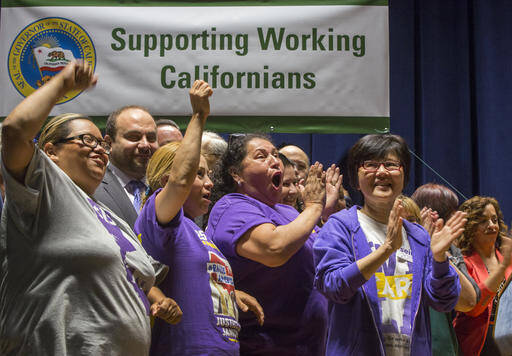California is on the verge of passing a $15 minimum wage law; New York may be next. Following years of inaction at the federal level—the last minimum wage increase out of Washington came in 2009—many cities and states have been setting minimum wage policy on their own as economic inequity in the United States reaches a social breaking point. That emerging patchwork of minimum wage levels may not be an undesirable outcome.
Certainly it is necessary for the federal government to establish a rate below which no worker should fall. Even better would be a Congressional bargain linking the minimum wage permanently to objective economic indicators and establishing automatic cost-of-living adjustments. But with the cost of living ranging widely around the nation and within states, varied minimums could have a greater impact on poverty reduction. Oregon recently voted to move toward the $15 minimum over the next six years. The state will step up from its current $9.25 an hour to $14.75 by 2022 in the city of Portland, but there will be a slightly lower rate for small towns ($13.50) and the most rural areas ($12.50), where a large hike could discourage job creation.
The new wage levels should move thousands of Oregonians out of a working-poverty trap. The results in Oregon should be assessed and replicated if the tiered approach proves effective in poverty reduction without job loss. Many people who work for minimum wage are supporting themselves and their families on it; they deserve a proactive wage policy that aids them in that effort.








